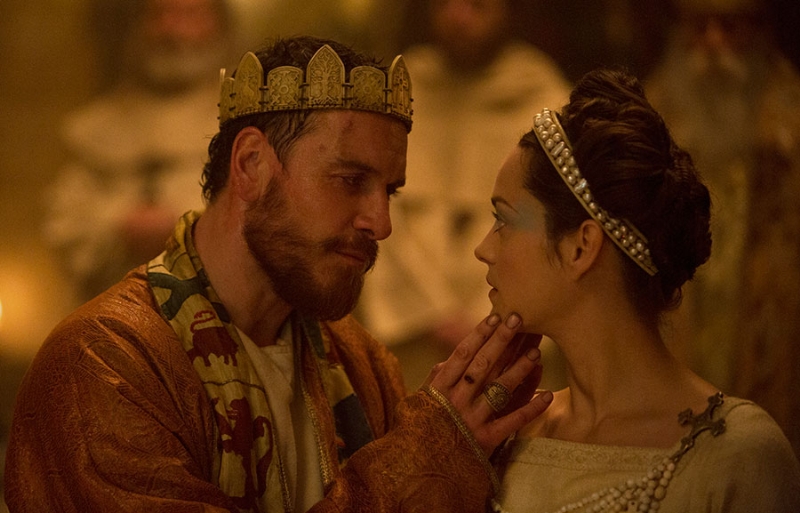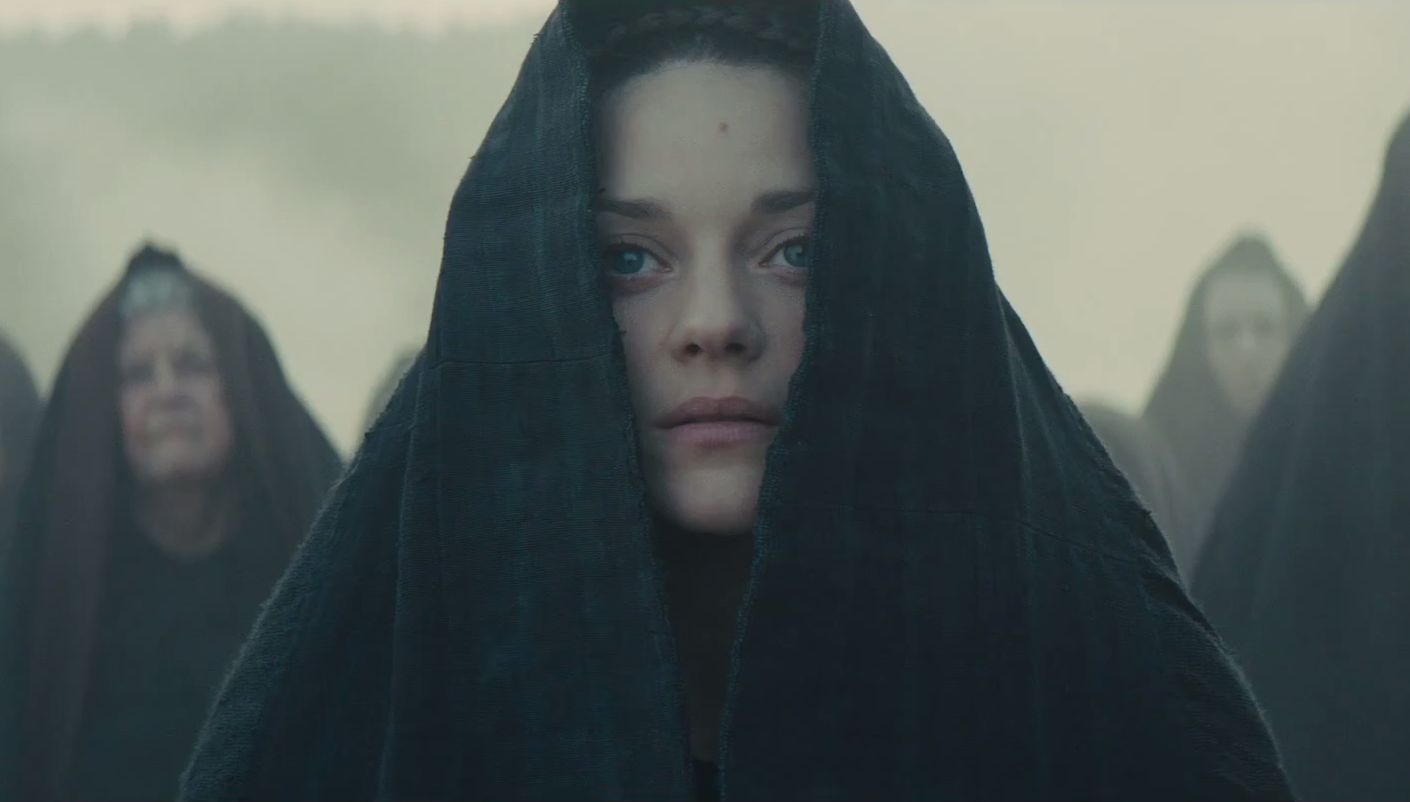Fair is foul.
Macbeth is one of the first plays people might think of when discussing Shakespeare, but it has a curiously limited acquaintance with the world of cinema. While plays like Hamlet and Romeo and Juliet have had any number of prominent reinterpretations, Macbeth has gone before the cameras comparatively few times. That could be because of the curse that supposedly surrounds it – superstitious theatre folk believe that speaking the title brings bad luck, so they call it simply “the Scottish play” – or it could just be that among the many black-hearted plays in Shakespeare’s arsenal, Macbeth’s heart is the blackest.
Still, one of those few film adaptations has an Australian connection: Geoffrey Wright’s 2006 version, a vehicle for a pre-Avatar Sam Worthington, set in the world of Melbourne gangs. This new period-appropriate version also has an Australian connection, as it was directed by Justin Kurzel, whose 2011 film Snowtown left audiences so discomfited. Cold-blooded murder was central to Snowtown, so one can easily see why Kurzel was chosen to helm Macbeth. Whether he’d be capable of stepping up his game to working with an A-list cast, featuring an Oscar winner (Marion Cotillard) and an Oscar nominee (Michael Fassbender), remained to be seen.
There’s no doubt that this is a visually dynamic, vigorous production, but a person’s affection for it may end up being a function of his or her affection for the play. Nearly every Shakespeare play has its moments of whimsy, but Macbeth is the notable exception. In Kurzel’s hands, the murderous ambition of a Scottish warrior and his scheming wife makes a person’s blood run even colder. While some interpretations leave an impression of Macbeth as a good man fallen under the spell of devious women – both a trio of witches issuing prophecies, and his own wife – this one moves the action along quickly enough that Macbeth’s humanity is notably blunted. There’s hardly any dialogue for the film’s first ten minutes, as it focuses on a battle distinguished by its use of super slo-mo and the brutality of the violence. When taken in combination with Macbeth’s rather quick fall from grace, it leaves us very little time to get on his side before we begin loathing him for his weakness and malice. Because the other characters are also malevolent to varying degrees, or at the very least just grim and unsmiling, we are left rooting for the lesser of evils. The fact that both Macbeth and Lady Macbeth become mad with guilt does little to excuse them for what seems like a vicious power grab.
As he did in Snowtown, Kurzel demonstrates how difficult it is to negotiate with people who will resort to any level of barbarism to achieve their ends. If this play has a hero, it’s Macbeth’s rival Macduff, who flees to England and pays for it with the lives of his wife and children. These deaths are not depicted with the gross physical detail that they could have been, but what’s here is shocking enough. These moments give the themes of Macbeth a real sense of modern relevance, especially in a cinematic season that also features Denis Villeneuve’s Mexican drug movie Sicario, where no family member is off limits in feuds between powerful men.
Most Shakespeare adaptations are not about the words, per se, as those words are four centuries old and already known to most of the audience. It’s what’s between the words, what’s done with the words, and by whom. Cotillard and Fassbender do seem to relish their roles and the choice nuggets of Shakespearean language that they get to deliver, but it would be a stretch to say that their performances contain many surprises. They fall into the category of “predictably good.” Each has at least one outstanding scene, but these will probably never be talked about as their most memorable performances. More memorable is someone like Sean Harris, who makes an impact in the smaller role of Macduff. He has scenes of devastating emotion and conspicuous restraint, both of which make a viewer sit up and take notice.
Kurzel’s visual scheme for the proceedings is bold and occasionally distinctive, as these Scottish highlands are both achingly gorgeous and chillingly barren. He composes his shots with great care, organising cloaked figures and buildings in a stark tableau. The film has sort of a Druid-like quality that makes it seem all the more primitive, in keeping with the play’s focus on our basest instincts. The infrequent use of colour, especially the reds of blood and of the fire that serves as a backdrop for the climax, are therefore all the more striking.
If there’s something notably lacking from this Macbeth, it’s the treatment of the “weird sisters,” more commonly described as “the witches.” They are easily the play’s most gothic element, providing ample opportunity for actresses to chew scenery, yet they are significantly underplayed here. Anyone looking for the classic incantation “Double, double toil and trouble/Fire burn and cauldron bubble” will be disappointed, as it doesn’t even appear in the script. It’s an unenviable task to cut any of the Bard’s precious words, but screenwriters Todd Louiso, Jacob Koskoff and Michael Lesslie have left some choice ones indeed on the cutting room floor. How significantly these decisions contribute to the somewhat diminished impact of the whole movie is uncertain.
7/10
For more Reviews, click here. If you’re digging ReelGood, sign up to our mailing list for exclusive content, early reviews and chances to win big!


